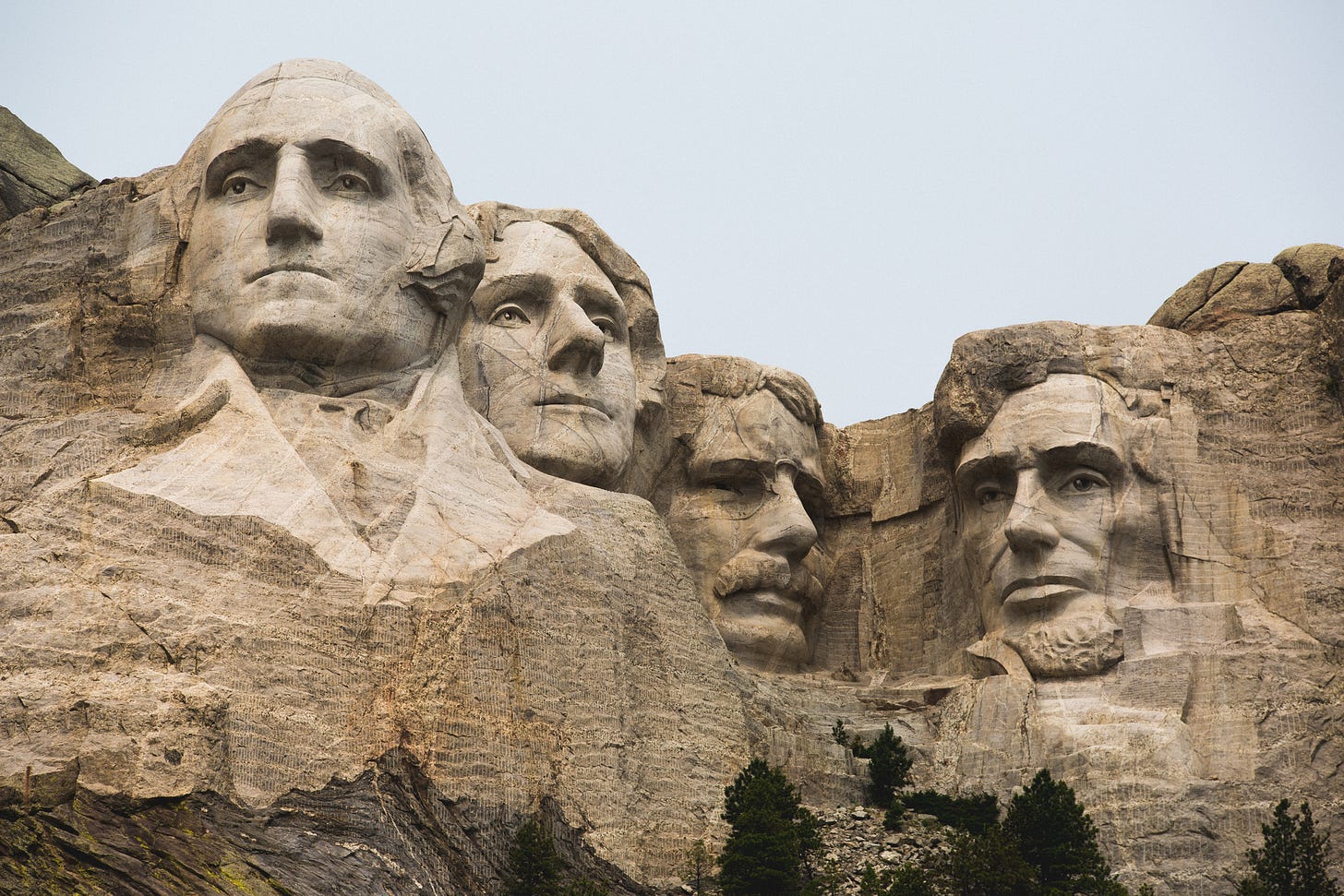Presidents’ Day.
It is a day when we honor the birthdays of two of our most revered presidents — Washington and Lincoln — but it is also an occasion to reflect on a job — president of the United States — that is unlike any other that has been created in the course of human history.
To be sure, there has been no shortage of powerful nations and powerful leaders. A small few have even been elected in some form of democratic process. But the singularity of this nation — multiethnic, multicultural, multi-religious, expansive, resource-rich, technologically advanced, cross continental — means that to lead it is to lead something that never quite existed before.
When we look back at how our nation has evolved, we see a narrative of struggles, triumphs, flaws, and aspirations. We must acknowledge the searing injustices — especially around slavery and the treatment of Native peoples — and the discrimination that remains in our society. We can also see that a nation founded with a hope of disentangling itself from global powers has itself become a global power and has used that stature in ways that have often benefited the world and sometimes destabilized it.
Our military is the strongest and most capable ever amassed. Our culture has reached nearly every corner of the globe. Our economic might shapes world events. And our ideals — imperfect and often poorly heeded within our own governance — have nonetheless helped reimagine what freedom and democracy can look like.
The task of managing all of this goes ultimately to one person, the president of the United States. Up until now they have all been men, another sign of a path toward equality that is still very much a work in progress.
Over the centuries, the power of this office has grown along with our country. It would now be unrecognizable to our founders, and many of them might fear what it has become.
And yet, through it all, the idea that our presidents are short-term stewards of our future, hired and fired by the public, had remained a steadfast part of our identity. Until that changed with the previous holder of the office, who instigated a violent insurrection meant to tear down this bulwark against tyranny.
Today, on this Presidents’ Day, we can see many manifestations of the office and those who have held it.
Our current president traveled to Ukraine — an active war zone, and one not protected by the U.S. military. He was there to buttress support for new and old alliances forged from the aftermath of the bloody world wars of the 20th century and being reimagined for a shifting and unstable new world order.
Today we also have a former president — Jimmy Carter — entering the final chapter of a life of service. He had one tumultuous term in office but upon leaving became an ideal for how a former president can continue to work to benefit his country and the larger world.
And we have the previous president, also a one-termer, plotting a return to power even as he stares down several possible criminal indictments. His post-presidency is one of a continued effort to undermine democracy and reclaim the presidency in a way that could redefine it in fearsome ways.
The contrasts in symbolism among these three men are striking. But they point to the vagaries of power and the uneven and often unexpected destiny of nations and their leaders.
Ultimately, however, Presidents’ Day is less about presidents and more about us. Will we remember that the person who holds the office, as powerful as they are, cannot be allowed to be bigger than the country they serve? In choosing who has the honor and responsibility to lead us, will we learn from the past? Will we wrestle with the present? Will we be the ones to dictate our future?
Not already a member of the Steady community? Please consider subscribing. Both free and paid options available. Please also share our newsletters with others.




We thank all of you who raised concerns about our use of a photograph of Mt. Rushmore in association with today’s piece. We recognize the complicated history of the place, especially in regards to Native peoples. We also understand its iconic status in relation to our national conception of the American presidency. Our hope was to use it as a way to symbolize a more nuanced and critical view of the office in line with the text of the piece, one that challenged simple hagiography. We understand that this approach may not have worked and we appreciate the opportunity for discourse on the subject here.
So grateful for President Biden. His skill at restoring NATO after the former guy tried to destroy it makes all the difference to protecting Ukraine. Biden doesn’t get nearly enough credit for everything he has accomplished. It’s too easy to forget the state of this country and the world when he became President. If he chooses to run again he has my support despite his age. He is wise enough to surround himself with very qualified and capable people. How many successful Presidents have accomplished many things despite health and mental impairment? History is full of examples. The most important thing is to prevent the Chaos Party from regaining control. Wishing President Carter a peaceful passing. He deserves all the love.